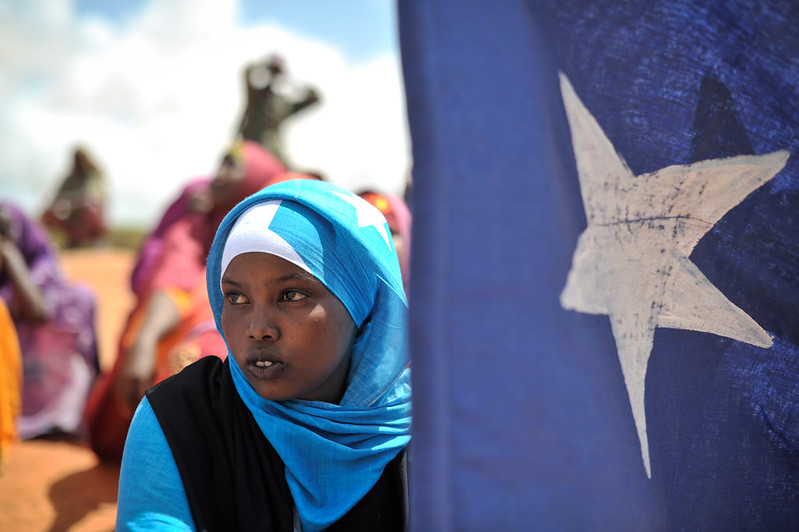Three Urgent Questions Ahead of Somalia’s Parliamentary Elections

On February 8, Somalia is scheduled to hold parliamentary and presidential elections following three decades of war, fragmentation and the painstaking reconstruction of a permanent government. In a country where democracy has long seemed an improbable dream, a successful election would mark a momentous step forward – but challenges stand in the way.
It’s become increasingly likely that the elections will be delayed; meetings to iron out the timeline are ongoing this week. However, even if they don’t happen on time, the political maneuvering behind the scenes will reveal key insights into Somalia’s democratic progress.
In 2012, Somalia finally re-established a permanent government after 21 years of civil war and transitional administrations. The new constitution called for direct elections; based on universal adult suffrage (commonly referred to as one person, one vote). However, due to security and logistical concerns, an electoral college system was used instead, with only clan elders comprising the electorate. Despite hopes that direct elections would take place in 2017, the electoral process once more fell short of the constitution’s requirements as clan elders were again the only voters. As a result, Mohamed Abdullahi Mohamed (more commonly known as Farmajo) was elected president after an Election Day marred by allegations of vote-buying.
In 2020, Somalia was supposed to hold its first direct elections since 1969, but the pandemic, security concerns and political disagreements caused the government to postpone voting until 2021 and reuse the same clan elder-based system. With Election Day fast approaching, the opposition candidates are now calling the election implementation process rigged, meaning the vote may be delayed again.
But whether voters make it to the polls next week or not, much can be learned from the pre-election period in Somalia. The outcomes of the following three questions, for instance, will define the country’s democratic development and reveal the strength of the country’s democratic institutions.
What role will civil society play in the elections?
With faith in the February 8 date wavering, civil society has called on the government to reform Somalia’s electoral system and delay Election Day. Among other goals, these groups are demanding the inclusion of a 30 percent gender quota in parliament, the removal of Farmajo loyalists from election implementation teams and access to monitor elector selection to avoid a repeat of the corruption of 2017.
If Farmajo’s government accepts these proposals and civic actors can monitor the process, it could indicate a strengthening of pluralistic democracy in Somalia. However, if civil society continues to be sidelined, democratic gains may have plateaued.
Will Somalia’s political elite further consolidate control?
President Farmajo and his allies have been accused of avoiding direct elections, soliciting insufficient input on the election model and staffing election agencies with loyalists, suggesting a consolidation of power by Somalia’s ruling elite. In response to these allegations, civil society organizations, activists and would-be opposition candidates are pushing for more input on the election’s format, and whether Farmajo’s government concedes on these issues will demonstrate how secure the elite feels.
Signs the government is seeking more inclusive input could suggest increasing democratic resilience, but a continued disregard of the opposition may signify the entrenchment of an elite that feels comfortable dismissing the concerns of broader democratic society.
Will political parties again play a subservient role to clan-based politics?
Many new parties have recently emerged in Somalia, but what role they will play if clan elders remain the electorate is uncertain. IRI has worked with parties to become more issue-based and responsive to citizens’ needs, but the indirect electoral model ultimately disincentivizes these democratic approaches in favor of clan control. Nevertheless, most parties have committed to campaign on ideological, rather than ethnic, platforms in the upcoming elections. To what extent they maintain issue-based campaigns will demonstrate the degree of progress political parties have made in their journey to democracy.
If pre-election wrangling results in opaque backroom deals, parties may see their relevance fade and be unprepared to contest future direct elections, which would suggest that Somalia’s democracy is currently underequipped to support a multiparty landscape based on ideological distinctions.
As these questions are answered, IRI will continue supporting Somalia’s path to multiparty democracy. Laying the groundwork for one-person, one-vote elections takes priority, and IRI will work with parties to develop issues-based responsive platforms that allow ideology (rather than clan) to become the most salient political cleavage.
Above all, the success (or failure) of this year’s elections will be a bellwether in determining what Somalia’s democratic blind spots are, which institutions are strongest and which areas need attention to ensure that the next election is finally run on the principle of one-person, one-vote.
Top